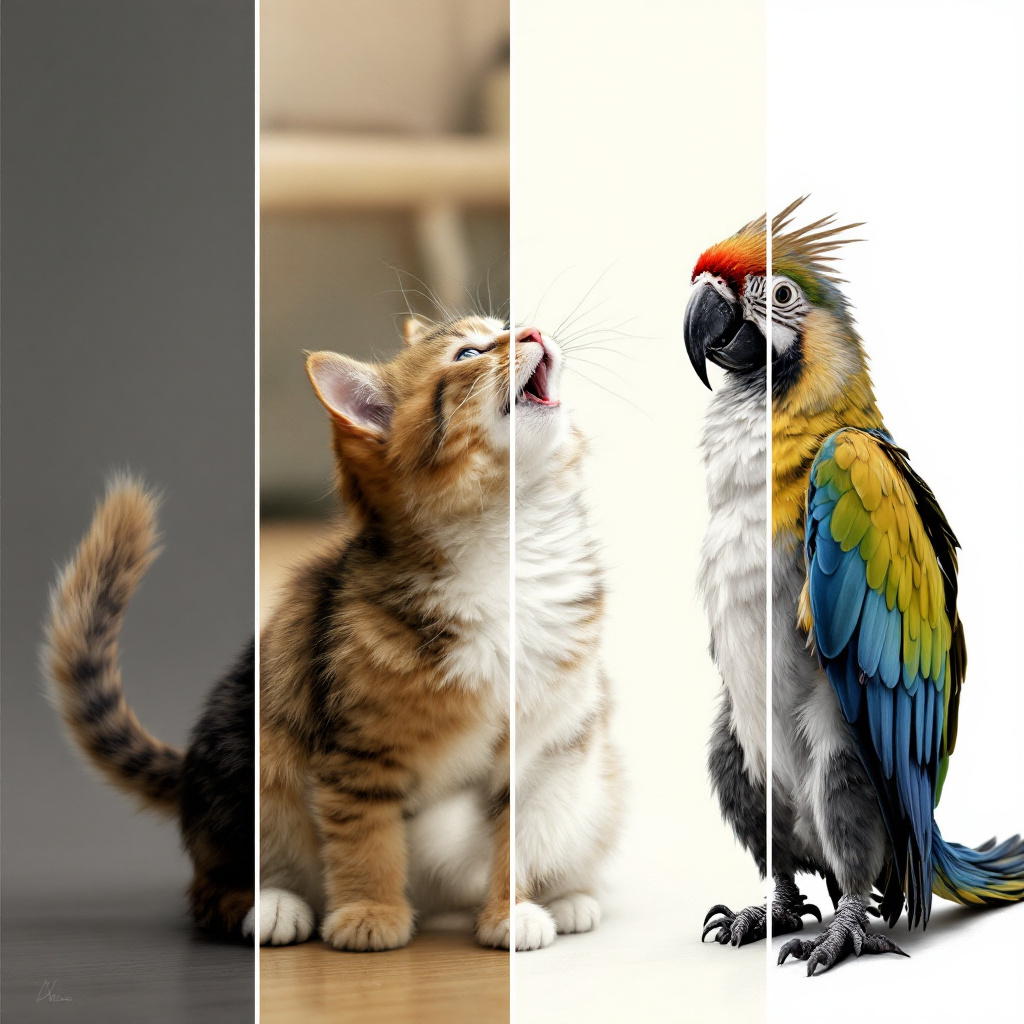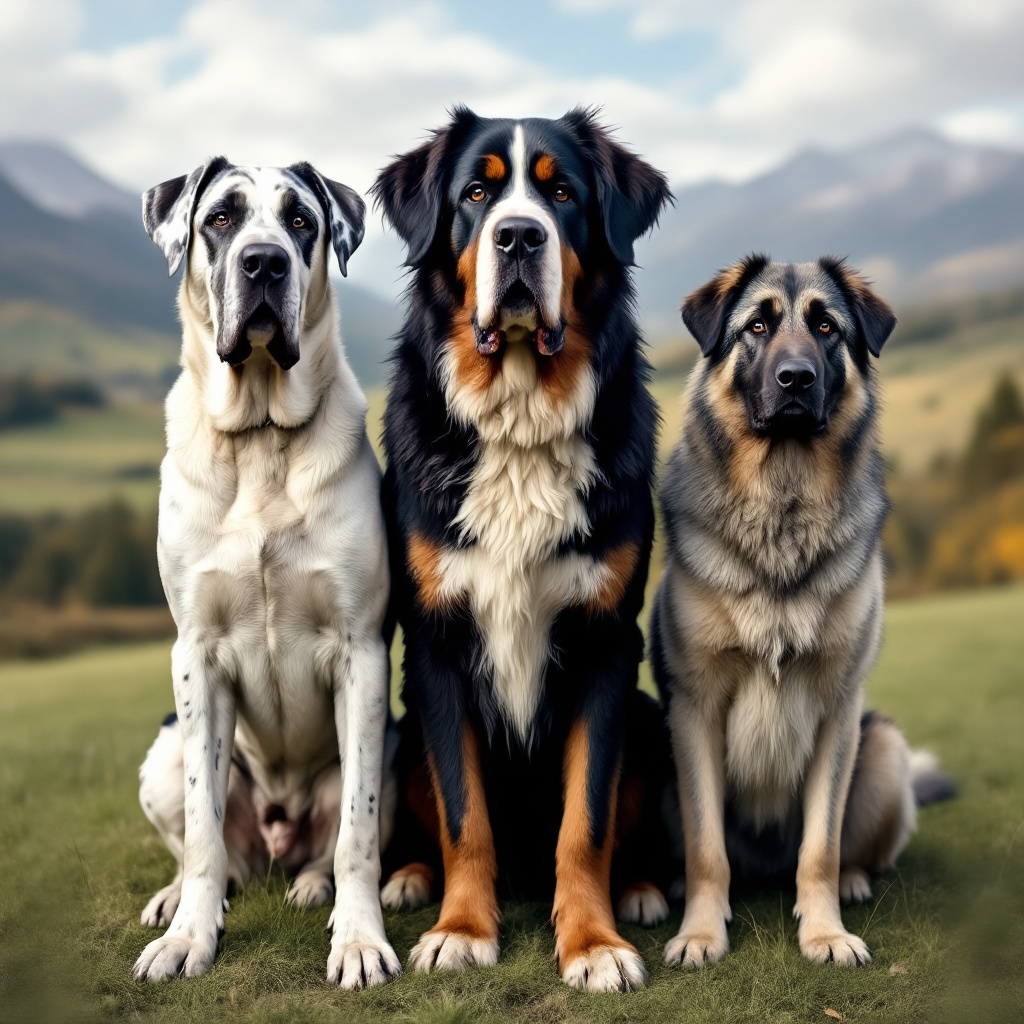Breeding and care of small hunting dogs: A Guide for Breeders and Enthusiasts
Introduction to the breeding of small hunting dogs
Anyone interested in breeding small hunting dogs will quickly realise that it is not just about reproducing the animals. Rather, ethical considerations, genetic management and the maintenance of breed standards take centre stage. This comprehensive guide offers valuable insights and practical tips for aspiring and experienced breeders alike.
Why breed small hunting dogs?
Small hunting dogs are known for their exceptional hunting skills. Their keen instincts, agility and remarkable stamina make them valuable companions in the hunting field. But it's not just about their hunting skills. These dogs are also loyal family members and require special care and breeding to maintain their unique characteristics.
Genetic diversity and healthy lines
Good breeders know that genetic diversity plays a key role. To preserve the health and vitality of small hunting dogs, the gene pool should be kept broad. Inbreeding carries the risk of genetic defects and health problems. Here are some practices that can help:
- Consultation of animal geneticists: They can help to interpret genetic tests and develop suitable breeding strategies.
- Pedigree analysis: Careful examination of pedigrees avoids inbreeding and promotes genetic diversity.
- Avoidance of close matings: You should avoid mating close relatives in order to maintain genetic diversity.
Ethical considerations in breeding
Ethics in breeding refers not only to the welfare of the animals, but also to the responsibility towards future owners and the dog breed as a whole. An ethical breeder:
- Pay attention to the welfare of the breeding animals and their offspring.
- Ensures appropriate health checks and vaccinations.
- Advises buyers honestly about the care needs and requirements of the hunting dog.
Caring for small hunting dogs: practical tips
Caring for small hunting dogs requires more than just regular feeding and walking. Here are some important aspects that should be considered:
Nutrition
Nutrition plays a crucial role in the health and performance of small hunting dogs. A balanced diet should be rich in protein and essential nutrients. Interesting fact: Did you know that small hunting dogs consume more calories due to their high level of activity? Make sure they get enough energy!
Healthcare
Regular visits to the vet are essential. Check-ups help to recognise potential health problems at an early stage. Here are some common health problems in small hunting dogs:
- Joint dysplasia
- Ear infections (especially in dogs with long ears)
- Dental problems
Training and socialisation
These dogs are naturally intelligent and eager to learn. A well-socialised and trained animal is easier to handle and shows fewer behavioural problems. Start training and socialisation as early as possible.
Hygiene and coat care
Small hunting dogs vary in their coat structure. Some require regular brushing, while others only need occasional grooming. A well-groomed coat is not only aesthetically pleasing but also healthy. Look especially for parasites and skin irritations.
Challenges and solutions
As with any breeding programme, there are also challenges when breeding small hunting dogs. A common question, for example, is: How do I find the right stud dog? Here are a few tips:
- Networking: Visit breed shows and hunting dog events to socialise.
- Health tests: Make sure that potential stud dogs have healthy test results.
- Breeding suitability tests: These tests help to find suitable partners that meet the breed standards.
Conclusion: Responsible breeding
Breeding and caring for small hunting dogs is a rewarding but challenging task. It requires knowledge, commitment and a deep love for the animal. When all these elements come together, you not only contribute to the preservation of the breed, but also promote its well-being and success. The goal should always be to breed healthy, well-socialised and capable hunting dogs that excel both in the hunting field and as family members.
FAQs
What does a small Münsterländer need?
A Kleiner Münsterländer needs plenty of exercise and mental stimulation. Daily walks and regular excursions into nature are important to keep the dog busy. The dog breed must be trained according to its hunting instinct.
How much exercise does a small Münsterländer need?
This breed is very lively and eager to move, so a Kleiner Münsterländer really needs a lot of exercise, every day, whatever the weather.
Is a German Wirehair difficult to train?
The Deutsch Drahthaar is an intelligent and quick-learning four-legged friend, but is not a dog for beginners due to its versatile ambitions. It belongs in the hands of a dedicated dog owner who wants to experience a lot with their dog.
How much exercise does a German Wirehair need?
The German Wirehaired Pointer loves to be outdoors and needs at least two hours of exercise every day. If you prefer to sit comfortably on the sofa, you should opt for a different breed of dog.
How do I find the right stud dog for small hunting dogs?
Networking is the key here. Visit breeding shows and hunting dog events to make contacts. Make sure that potential stud dogs have healthy test results and pass the breeding suitability tests.
Which genetic tests are necessary for breeding small hunting dogs?
Important genetic tests include tests for joint dysplasia, eye diseases and other breed-specific genetic disorders. An animal geneticist can help choose the right tests and interpret the results.
What health precautions are important for small hunting dogs?
Regular visits to the vet are essential, as are vaccinations and check-ups. Particular attention should be paid to joint dysplasia and ear infections, which are common in these dogs.
How can I properly socialise my small hunting dog?
Start socialisation as early as possible. Expose him gradually and positively to different environments, people and other animals. Training sessions should be short and consistent to achieve the best results.
What is the best diet for small hunting dogs?
A balanced diet rich in protein and essential nutrients is crucial. Make sure that the food meets the high energy requirements of these active dogs. Avoid poor quality ingredients and make sure the food contains all the necessary vitamins and minerals.
Author
-

David is a passionate aquarist with more than 20 years of experience in setting up and maintaining freshwater and saltwater aquariums. He specialises in the biodiversity of aquatic ecosystems, aquascaping and the species-appropriate keeping of aquarium fish. His articles on haustierewissen.de are a treasure trove for aquarium enthusiasts looking for sound advice and creative ideas for their underwater worlds.
View all posts




